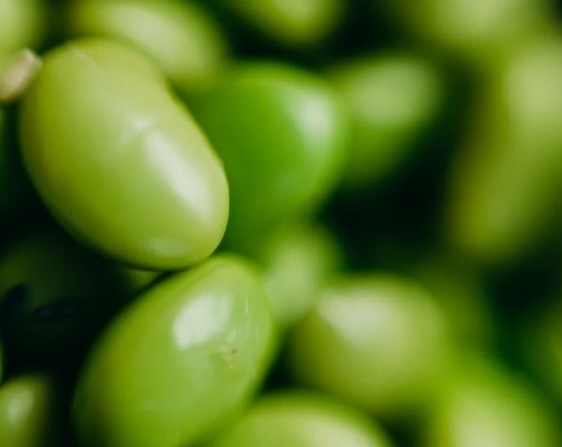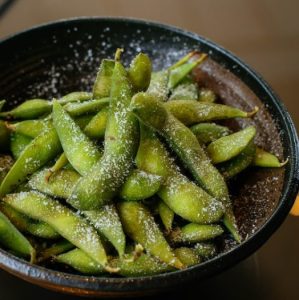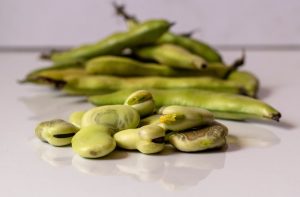
Edamame and broad beans are two different types of beans that are often compared and confused with each other. Although they come from the same family, they are distinct in their flavor, texture, and usage. In this comparison, we will delve deeper into the differences between edamame and broad beans to help you understand their unique qualities and uses.
What is Edamame?
Edamame is a type of soybean that is harvested when it is still tender and green. It is typically eaten as a fresh, steamed vegetable and is a popular snack in Asian cuisine. Edamame beans have a nutty flavor, which has been described as a cross between peas and almonds. Edamame beans are an excellent source of protein and are rich in vitamins and minerals such as iron, calcium, and potassium.
What are Broad Beans?
Broad beans, also known as fava beans, are a type of legume that are much larger in size compared to edamame beans. They have a meatier flavor and chewy texture, and are commonly used in Middle Eastern and Mediterranean cuisines. Broad beans are a good source of fiber, protein, and essential vitamins and minerals such as folate, magnesium, and phosphorus.
Differences
Uses
One of the main differences between edamame and broad beans is their usage. Edamame is typically consumed as a snack or a side dish, while broad beans are used in a variety of recipes, from stews and soups to spreads and dips. Additionally, edamame is often eaten raw, while broad beans are usually cooked before they are consumed.
Flavor
The flavor profiles of edamame and broad beans are also distinct. As mentioned earlier, edamame has a nutty flavor that is reminiscent of peas and almonds, while broad beans have a meatier flavor with a chewy texture. If you are looking to add a unique flavor to your dishes, it is important to keep in mind these differences and choose the appropriate bean accordingly.
Nutrition
Although both edamame and broad beans are excellent sources of protein and essential vitamins and minerals, there are some differences in their nutritional content. Edamame is a rich source of iron, calcium, and potassium, while broad beans are a good source of fiber, folate, magnesium, and phosphorus. When choosing between the two, it is important to consider your nutritional needs and choose the bean that will provide you with the nutrients you need.
Conclusion
In conclusion, edamame and broad beans are two different varieties of legumes that have distinct flavor, texture, and nutrition profiles. Edamame is a young soybean that has a sweet, nutty flavor and a softer texture. Broad beans, on the other hand, are an older variety of beans that have a more earthy flavor and a firmer texture.
Both varieties are great sources of protein, fiber, vitamins, and minerals, making them both healthy choices for many diets. Ultimately, both edamame and broad beans offer a variety of delicious and nutritious options, so it’s up to you to decide which one you prefer!











